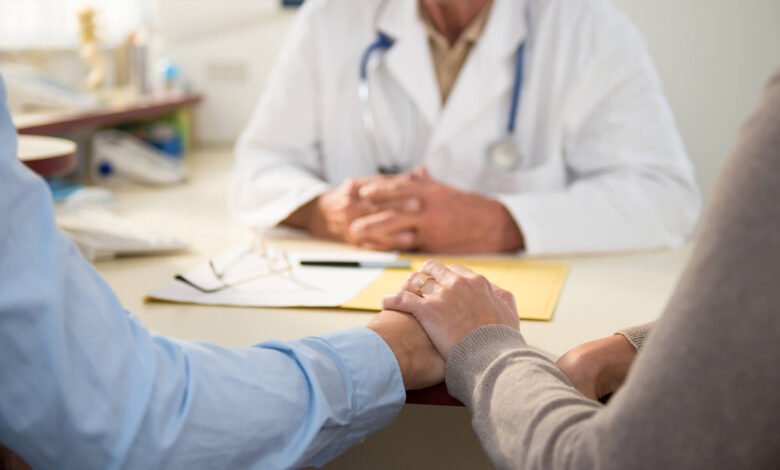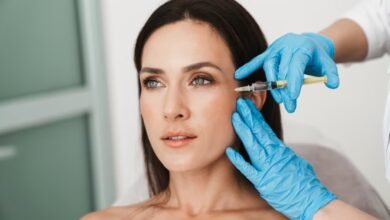Your Concerns About Fertility After 35 Years Of Age

What are the chances of fertility after 35 years of age? Age has a known impact on fertility. How old is too old? is something you might be considering as you near your mid-30s. and “How likely are I to become pregnant?” This is particularly true if you wish to start or grow a family.
To allay concerns, reproductive endocrinologist Dr. Arlene Morales of Sharp Community Medical Group provides answers to some often-asked fertility questions. The likelihood of becoming pregnant after the age of 35 appears to be rather good.
Read More: How Dopamine Dressing Can Improve Mental Health And Cosmetic Procedures
How Does A Person’s Age Affect Their Fertility?
Men and women experience varying effects of age on fertility. For men, minor changes in fertility start to occur around the age of 40 and become more obvious at the age of 50 and beyond. Men can still contribute to pregnancies well into their 70s, though. It changes at a different pace for women. In a woman’s 20s, she is at her most fertile. In the 30s, fertility gradually declines:
- A woman has a 20% monthly chance of becoming pregnant at the age of 30. Within the first year of trying to get pregnant, up to 85% of women this age will become pregnant
- .15% of women over 35 will conceive each month.
- The monthly chance of conception at age 40 is 5%. Within a year, 44% of women in their 40s will become pregnant.
The advice is to move on with an infertility evaluation if pregnancy does not occur after 12 months of trying to conceive in women under 35 or after 6 months in women over 35, based on these figures.
What Difficulties Might One Face After Turning 35?
Every situation differs. Some healthy women over 35 will have no trouble getting pregnant, while others will. Even if they had no trouble getting pregnant with their first kid, women can still have fertility problems when trying for their second or third child.
Age-related increases in miscarriage rates are also seen in those who do conceive. When you are 20 years old, your miscarriage risk is 15%; by the time you are 40, it is over 40%.
What Healthy Behaviors Might One Adopt To Increase Fertility?
Your chances of becoming pregnant may be impacted by the fact that your eggs deteriorate as your body does. But there are methods to assist your body in getting ready to conceive after age 35:
- To confirm that you are in good enough health to conceive and give birth to a child, see your primary care physician.
- Maintain a current schedule for vaccines, preconception labs, and routine screenings.
- keep a healthy BMI (body mass index).
- Purchase a prenatal vitamin that contains folic acid.
- Stop using and/or exposing yourself to nicotine and/or cannabis.
- Keep your daily caffeine intake to under 200 mg.
- Have a moderate alcohol intake (no more than five to 10 drinks per week).
How Can Someone Improve Their Chances Of Getting Pregnant Naturally After 35?
Even if the market is flooded with devices like ovulation test kits and monitors, tracking your menstrual cycle and scheduling your sex is more significant.
Sometimes people wait for certain test parameters to change, which makes them worried and prevents them from having adequate sex. It is recommended to have sex one to two days before and on the day of ovulation if you are just starting your infertility treatment. Most couples can ensure that their intimate relations take place during the fertile window by scheduling regular sex two to three times per week, commencing shortly after the woman’s menstruation finishes.
Read More: 7 Ways to Keep Your Employees Stress-Free at Work
What Options Are There For People Who Are Having Trouble Getting Pregnant Naturally After They Are 35?
Do not put off speaking with your doctor if you are over 35 and have been trying to get pregnant for at least six months. It doesn’t imply that you’re committed to any kind of therapy. Simply put, it indicates that you are discussing potential barriers to conception with a reproductive endocrinologist. It’s a diagnostic assessment.
Before seeing a doctor for an evaluation, I advise partners to try getting pregnant on their own. If you’re between the ages of 35 and 39, try to get pregnant for six months. Try for three months before an evaluation if you are between the ages of 40 and 42. I advise consulting a doctor about your reproductive objectives before trying to conceive if you’re between the ages of 42 and 45 or older to maximize your chances.
What Guidance Would You Offer Someone Who Is Concerned They Are Past The Point Of Conception?
There are many fertility myths out there, so it’s a good idea to empower yourself with accurate, research-backed information even though it can undoubtedly make some people anxious. The good news is that there are lots of techniques to assist you in getting pregnant, and technology is always developing to open up new doors to fatherhood.








One Comment